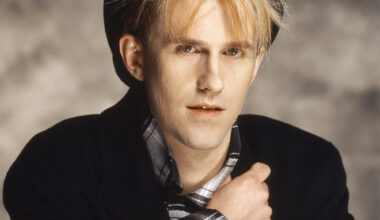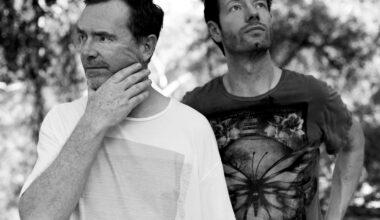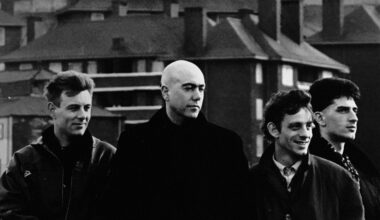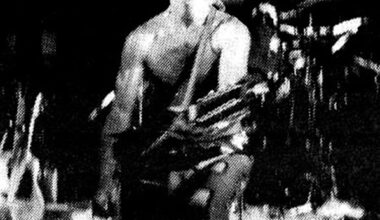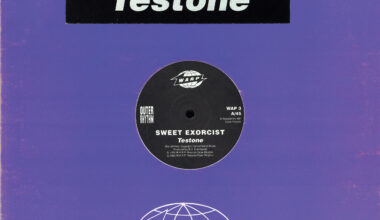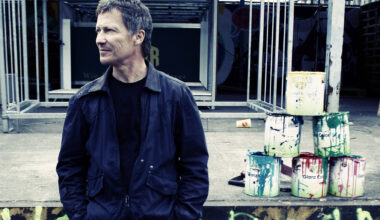Recorded in November 1986, ‘Kisspower’ was a cut ’n’ paste trailblazer featuring a host of samples from Prince and Run DMC to Springsteen. Age Of Chance bass dominator Geoff Taylor is our guide
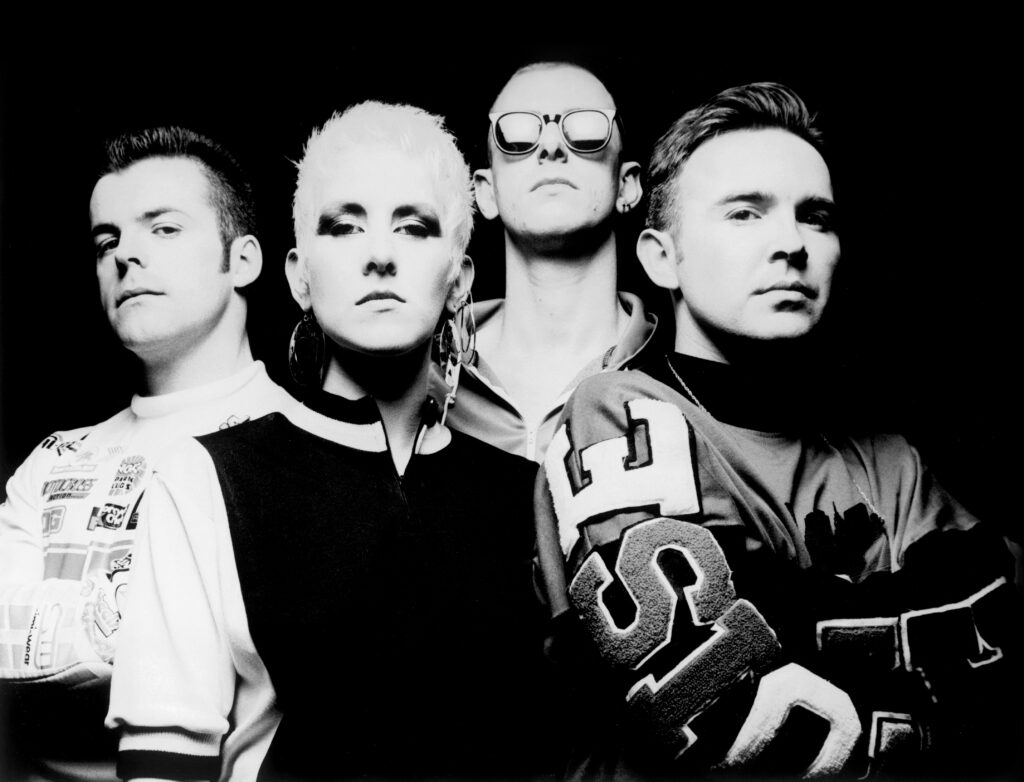
“We’d played a few gigs and managed to put some money together to record and release our first single, ‘Motor City’, in 1985. There was a band at the time in Leeds called The Wedding Present, their singer Dave Gedge used to live in the street behind me. He had a fanzine called Blood From A Stone, and he’d come round to my flat to interview us. We’d sent our single to John Peel that week and I had one of those radio alarm clocks with Peel’s show on in the background and he played it as we were talking to Dave Gedge!
“There’s a lot of bands who had that same start to their career on the Peel show. We initially recorded ‘Kiss’ for our second Peel session in June 1986, we wanted to do ‘1999’, but we’d heard Big Audio Dynamite were doing that in their live shows. There was a band we liked called the Fire Engines who’d covered Heaven 17’s ‘Fascist Groove Thang’ when it was still in the Top 30. There was something great about doing that so we thought, “Why don’t we do that with Prince?” And ‘Kiss’ was in the charts at the time so…
“Apparently, Peel got a lot of requests for our cover: it was Number Two in his Festive 50 that year. When we signed to FON we re-recorded ‘Kiss’ as part of the ‘Beneath The Pavements The Dancefloor’ sessions at FON Studios in Sheffield in November 1986. When we’d finished we still had some studio time left, I think it was 12 hours, from six in the evening until six in the morning.
“We loved all the hip hop that was emerging around that time, LL Cool J had just come out, as had the Akai S900 sampler and FON had one in their studio so we decided to do a track using the Akai and the result was ‘Kisspower’. We all brought in a load of records and I remember us sitting round a table full of LPs and seven-inches and just trying stuff out.
“Over the years I’ve thought we must have heard, or I must have done at least, ‘The Motorcade Sped On’ by Steinski And the Mass Media, but it can’t have been that track because I didn’t hear it until it was on a four-track EP on the cover of the NME in February 1987. It’s still one of my favourite records of that genre. We just liked the idea of taking a bar or two of one track and putting it over something you would have never heard together before.
“We had [Warp Records co-founder] Rob Gordon engineering the session. He was Chakk’s in-house guy and went on to do some incredible stuff. I remember him getting a bit fractious towards the end because he was so tired.
“So on ‘Kisspower’ we’ve got three versions of ‘Kiss’ in there, Run DMC, there’s several samples from Lenny Bruce’s ‘Religions Inc’ sketch including the ‘Hello Johnny what’s shaking baby’ line, ‘Kick Out The Jams’, ‘Nasty’ by Janet Jackson’s in there… ‘Stop In The Name Of Love’… ‘Walk This Way’, which I think was maybe out that year… ‘Somewhere’ from West Side Story… ‘Close (To The Edit)’, I remember Rob Gordon being keen on Art Of Noise, I wasn’t that familiar with them at the time, but it was a big track, Springsteen, ‘Rock The Bells’… apart from anything else, you had to say it had a sense of humour.
“‘Kisspower’ was recorded around the same time our deal with Virgin was being set up. They had 500 one-sided, white label 12-inches pressed up, but no one knew what to do with them. I’ve got an original copy from the time and I’ve got one I bought on eBay about two years ago for about £20. Virgin definitely got cold feet about releasing it. I always remember a meeting where Simon Draper, the MD, said, “MC5 would sue you because they’re broke, Bruce Springsteen would sue you because he’s rich”.
“If only we’d have known what was just around the corner. It’s strange because fortunes have been made by people bringing out records where a sample gives it some kind of kudos, and people have been paid a lot of money to use samples of their work. What we did, that was the beginning of it.
“As the years wore on, Prince wouldn’t let anyone cover his songs. I went to see him in about 2006 at the O2 in London. He came on and did ‘I Feel For You’ by Chaka Khan and I thought, ‘What’s he doing coming on and the first song of the night’s a cover?’ and then I remembered he wrote it! You forget how many songs he’d written, but if it weren’t for covers you wonder if he would have got through the 80s in as luxurious a fashion as he did.
“Do we feel like pioneers? I think we certainly did a few things first. I think we created a path for other people to follow. People always mention the JAMMs as being around that time, but ‘All You Need Is Love’ with the MC5 sample on it, wasn’t until a good few months later. I really like Bill Drummond, don’t get me wrong, but I’d like to know how ‘All You Need Is Love’ came out with the MC5 sample on it – it would seem like a coincidence… or they heard our track, which isn’t beyond the bounds of possibility.
But it’s like any new aspect of pop culture, it comes in and moves really quickly, six months is a really long time. In the mid-80s, there was a creative battle going on as to who would have the most groundbreaking record like LL Cool J, then Public Enemy, JVC Force, people topping each other with great records.
We quite quickly went from being an indie band, broke and borrowing stuff all the time, to buying three S900s, which at the time were over three grand each. There was no going back once we’d discovered the S900. We used them live, which people wouldn’t attempt now because there’s so much loading and reloading of samples and they had relatively little memory. Did we ever do ‘Kisspower’ live? No! That would be more of a DJ thing, but it’s an interesting thought.
